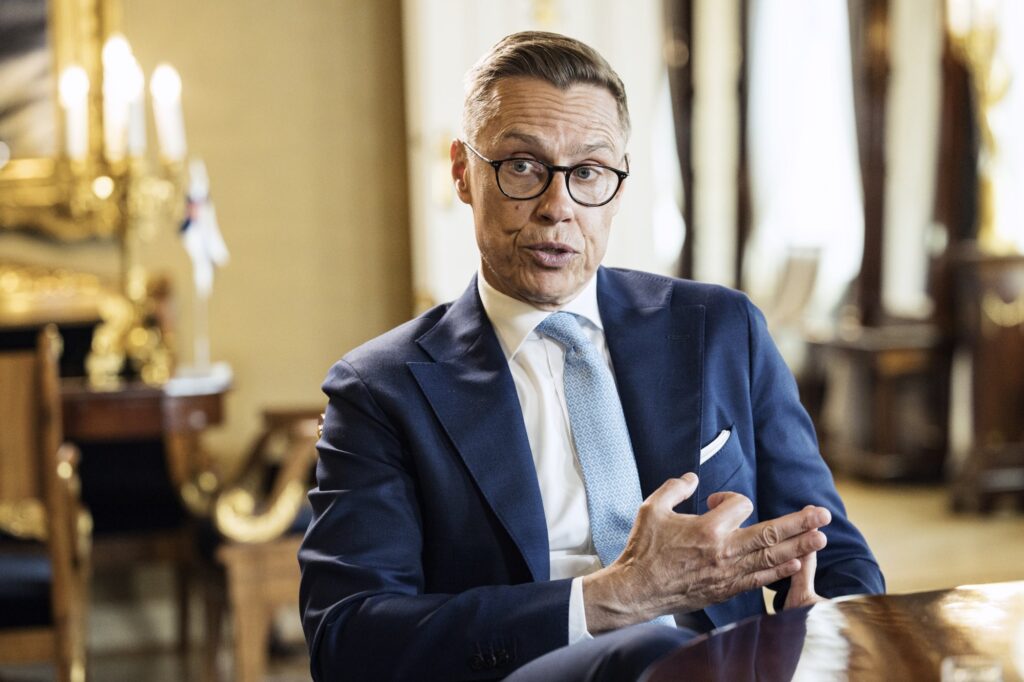Le Monde: Finnish president sees potential for Ukraine-Russia negotiations, outlines key elements for success
Finnish President Alexander Stubb believes Ukraine is better prepared for potential negotiations with Russia than it was two months ago. In a Le Monde interview, Stubb cited improved military equipment and budget support as factors strengthening Ukraine's stance.


In an interview with Le Monde, Finnish President Alexander Stubb indicated that the time may be approaching for negotiations between Ukraine and Russia.
Ukraine is looking for ways to organize the next Global Peace Summit, this time involving Russia, compared to the June summit in Switzerland.
According to Stubb, Ukrainian President Volodymyr Zelensky’s recent openness to Russian participation in a peace summit is a strategic move. “Zelensky is playing his cards as he should,” Stubb told Le Monde.
He argues that Ukraine is now in a stronger position than it was two months ago, citing improved equipment and budget support, Le Monde reports.
The Finnish president contends that the situation has improved since spring when there were concerns about blocked American aid and difficulties in European equipment deliveries to Kyiv.
He also claims that Russian advances have stalled, stating, “Russia is not advancing, according to our intelligence, and its losses are even higher than before,” according to Le Monde.
Stubb suggests that Putin’s strategy of waiting for Western war fatigue and the US elections backfired. However, he cautions that starting negotiations does not necessarily mean making concessions, Le Monde reports.
For successful negotiations, Stubb outlines four key elements Zelenskyy needs:
- decision-making power over currently occupied territories
- security guarantees (potentially through bilateral agreements and paths to NATO and EU membership).
- justice for war crimes.
- support for the reconstruction of Ukraine.
The Finnish President believes that to achieve peace, Russia must withdraw its troops from Ukraine, but this cannot be considered as a precondition.
He also stressed the importance of convincing the Global South that Russia’s actions amount to imperialism, arguing that ending the war is in their interest as well.
Stubb particularly highlighted China’s potential influence in the situation, given its “strong position regarding Russia.”
“If Xi Jinping wanted to stop the war, he could call Putin and say, ‘Enough,'” Stubb said to Le Monde.
In July, a Razumkov Centre survey revealed that while 44% of Ukrainians support starting peace talks with Russia, a significant majority reject Russian President Vladimir Putin’s conditions. Specifically, 83% oppose withdrawing Ukrainian troops from occupied regions, and 84% are against ceding these areas to Russia.
EU High Representative Josep Borrell stressed that this fall’s next peace summit may involve Russia but must be based on international law, not on Putin’s terms.
Related:
- Zelenskyy calls on West to deprive Putin of money and capability to produce more weapons for war against Ukraine
- ISW: Orbán seeks to shift West’s attention from supporting Ukraine to peace talks
- Türkiye offers to mediate peace talks between Ukraine and Russia
- Putin’s peace talks ruse: why the West should listen to Ukraine



